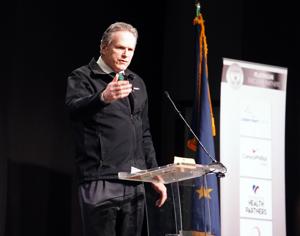
U.S. Senator Amy Klobuchar has publicly denied claims stemming from a viral deepfake video that featured her making disparaging remarks about actress Sydney Sweeney. The senator clarified that the video, which presented her discussing Sweeney’s recent collaboration with American Eagle, was artificially generated and not an actual statement.
The incident began when a digitally altered video surfaced on social media, depicting Klobuchar in a Senate Judiciary subcommittee setting. In the clip, the senator was shown using the phrase “perfect t—–s” in reference to Sweeney’s advertisement for a new line of jeans. The video quickly attracted widespread attention and backlash, prompting Klobuchar to release an official statement to clarify her stance.
In an interview with the New York Times, Klobuchar explained, “The A.I. deepfake featured me using the phrase ‘perfect t—–s’ and lamenting that Democrats were ‘too fat to wear jeans or too ugly to go outside.’ Though I could immediately tell that someone used footage from the hearing to make a deepfake, there was no getting around the fact that it looked and sounded very real.”
The manipulated video depicted a fictional scenario where Klobuchar criticized the Democratic Party’s representation in advertising. In it, the senator’s deepfake stated, “If Republicans are gonna have beautiful girls with perfect t—–s in their ads, we want ads for Democrats too, you know.” The clip continued with exaggerated commentary on the Democratic image, ending with a bold assertion on representation.
In light of this incident, Klobuchar announced her intention to introduce new legislation aimed at combating the misuse of deepfake technology. She proposed an act that would give individuals the right to request the removal of deepfakes featuring their likeness or voice from social media platforms, with specific protections for free speech under the First Amendment.
The emergence of deepfake technology raises significant concerns about misinformation and personal privacy. As lawmakers grapple with the implications of these advancements, Klobuchar’s proactive approach highlights the urgent need for regulations in the digital landscape.
This incident not only illustrates the potential dangers of deepfake technology but also serves as a reminder of the challenges faced by public figures in the age of digital media. Klobuchar’s response underscores the importance of addressing these issues head-on to protect both individuals and the integrity of public discourse.







